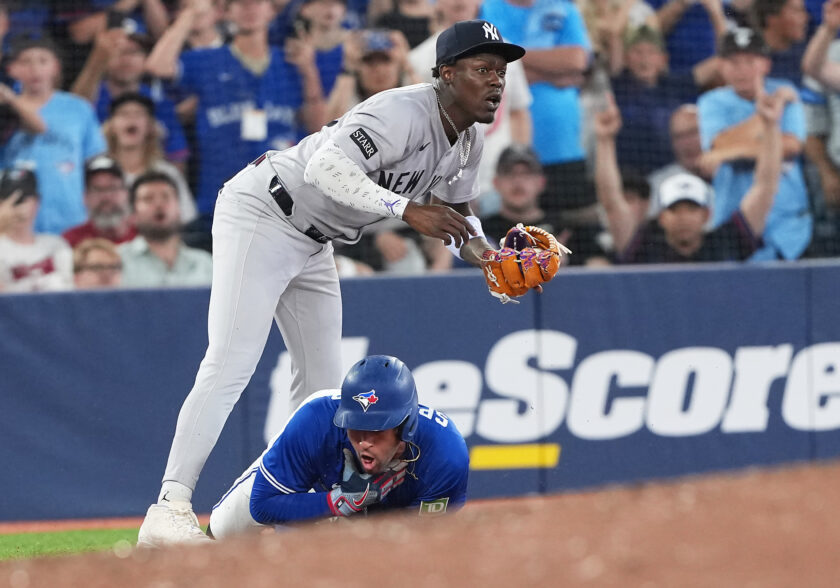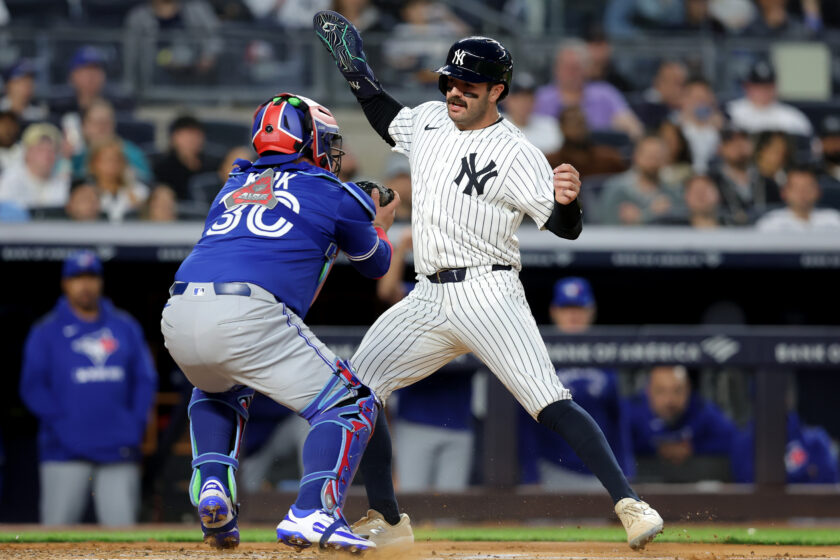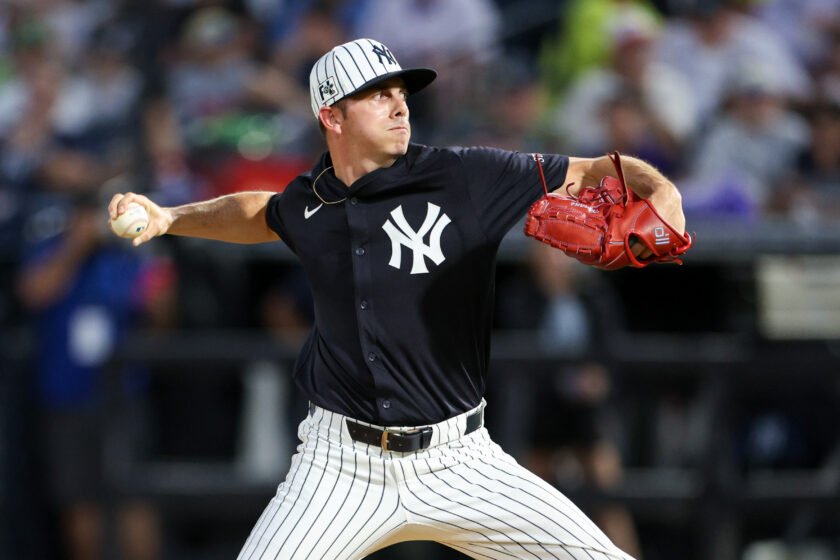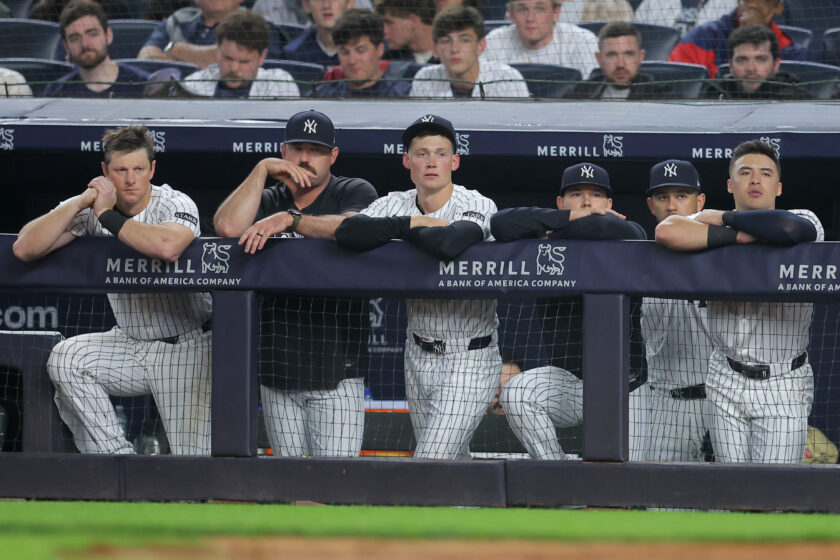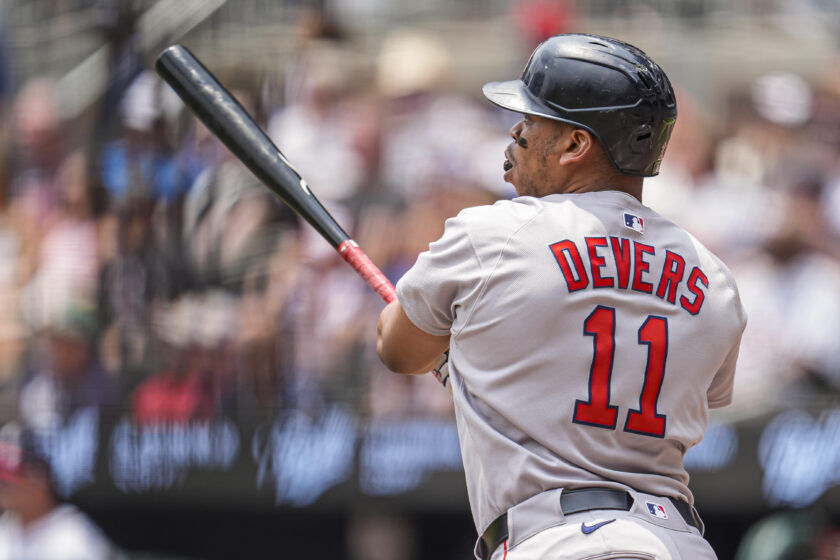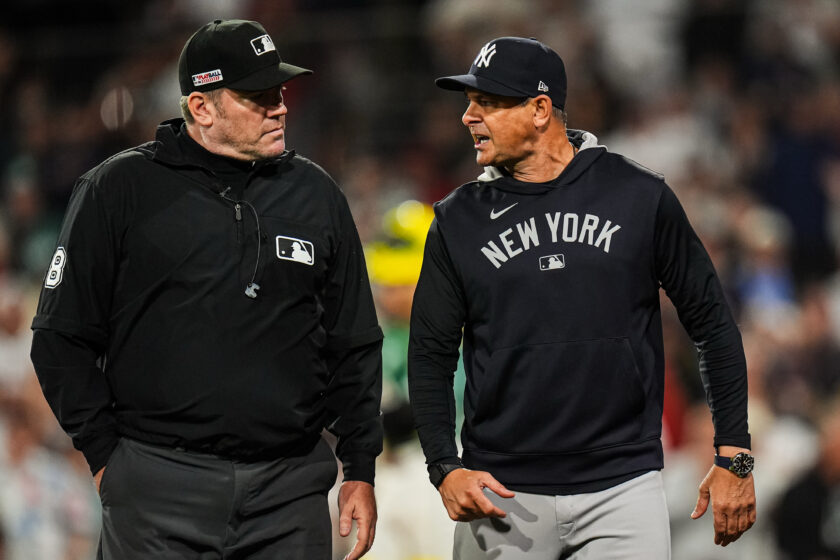The complicated Yankees legacy of Alex Rodriguez
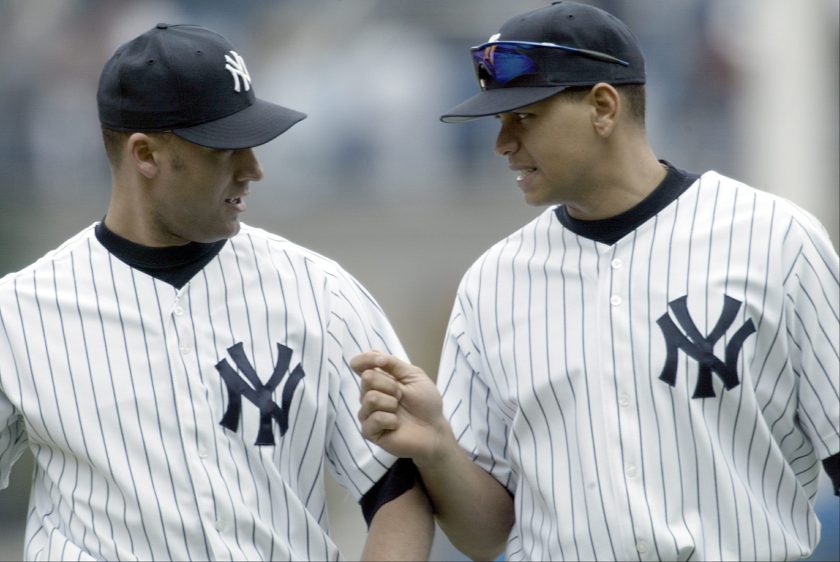
Alex Rodriguez and the Yankees have a complicated relationship.
The same extends to the three-time MVP’s bond with Yankees fans. Some brush his controversies aside and say he should automatically have his No. 13 retired in Monument Park. Others are more than happy to toss aside 12 years in pinstripes and not even have the debate for any number of reasons.
I got a front-row seat to the latter opinion in 2005, when I was 19-years-old and working at a sporting goods store. Most of my co-workers were Yankees fans. My closest friend, Rich, said the same thing every day.
“Alex Rodriguez is not a New York Yankee,” he would loudly proclaim in his thick South Brooklyn accent, probably with a mouthful of a sausage and peppers sub. “No big hits, never clutch, not a Yankee.”
That’s quite the declaration for someone who, steroids or no, still hit 696 home runs, 233 of which came with two outs. Yet, it isn’t exactly wrong. A-Rod hit a respectable .265 with two outs and runners in scoring position for his career, but only with 60 home runs and 451 RBI in 22 years. That’s 8.6% of his career homers and 21.6% of his RBI, not exactly eye-popping numbers.
Rodriguez wasn’t much better in “late and close” situations, batting just .268, but he did have 88 home runs with 291 RBI. He truly is a complicated man with a complicated legacy.
Back in focus
The debate over Rodriguez and his overall Yankees legacy is picking up steam with ESPN’s recent Derek Jeter docuseries “The Captain.” The project has put their “friendly” rivalry and falling-out back in the spotlight. And that they claim they have settled their differences.
Cue the A-Rod fanatics calling for an immediate jersey retirement ceremony and plaque. Unfortunately, Rodriguez and his Yankees legacy aren’t as easy as that.
It all starts with how he became a Yankee after a proposed trade to the Red Sox fell through. The Rangers gave up on his $252 million deal after three years and traded him to New York for homegrown star Alfonso Soriano. That alone was controversial. On one hand, the hands-down best hitter in baseball was now a Yankee. On the other hand, Soriano was knocking on the door of a 40-40 season and losing him was also disappointing.
Rodriguez was expected to switch to third base. It didn’t matter that Jeter was an inferior glove at shortstop. The move was happening and, in fairness to Rodriguez, he was above average at the hot corner. Furthermore, he produced at the plate despite a seemingly limited “clutch” factor.
Yet, if there’s one thing Rodriguez was good at in his career, it was controversy. Scott Raab’s infamous “Esquire” piece was just the tip of the iceberg. Rodriguez always managed to draw attention for the wrong reasons on an almost annual basis:
• 2004: Interferes with a grounder in Game 6 of the ALCS against the Red Sox by slapping the ball out of Bronson Arroyo’s hand on the attempted tag.
• 2005: Wins second MVP trophy, hits. 133 in Yankees’ ALDS loss to Anaheim.
• 2006: Drops an easy pop-up after failing to communicate with Jeter, who noticeably stares him down on camera. Speculation on the state of the two’s friendship runs rampant.
• 2007: Third MVP season, but draws negative attention in May when he gets photographed with a mystery woman in Toronto despite being married with children.
• 2007/08: Opts out of his contract during Game 4 of the World Series, surprising both the Yankees and all of baseball. Widely criticized, he later signed a new 10-year deal with New York.
• 2009: Sports Illustrated reports Rodriguez tested positive for steroids in 2003. Rodriguez admits to using steroids from 2001-2003, then misses the first six weeks of the season following hip surgery. He hits .365 in the playoffs with six home runs and 18 RBI, being uncharacteristically clutch as he wins his only World Series ring.
• 2010-12: Bats .160 in the playoffs and is pinch-hit for several times in the 2012 postseason. He draws further controversy in the ALCS when he reportedly asks for two female fans’ phone numbers via signed baseball during a game.
• 2013: Misses the first four months of the season after another hip surgery. Even worse, he is caught up in the Biogenesis scandal and draws a record 211-game suspension through the 2014 season. The long-strained relationship between Rodriguez and the Yankees front office also goes public.
There were good times, too
What’s sad is that it wasn’t all drama all the time. Amidst the chaos, Alex Rodriguez had some great moments in a Yankees uniform. His 400th, 500th and 600th career home runs were all in pinstripes, for example. But we remember the celebrity instead of the slugger. We forget Rodriguez hit 33 home runs at age 39 in 2015, fresh off suspension. Instead, we focus on how his unceremonious release the following year paved the way for Aaron Judge’s debut.
Let’s now circle back: What is Rodriguez’s Yankees legacy? He accumulated a lot of stats in 12 years in the Bronx, but only has the one World Series ring. He’s not in the same tier as regular champions like Mickey Mantle, Babe Ruth and Jeter.
At the same time, Rodriguez is a tier above someone like Roger Maris, who had two big years in New York before injuries took over. Yet, much like the top-tier players, Maris has his number retired and a plaque in Monument Park.
Rodriguez is in a tough spot. He has the numbers expected of a Yankee great, but not many grand accomplishments. Dave Winfield could be a good comparison, especially given his bombastic relationship with George Steinbrenner. But he has no retired number or plaque.
But let’s focus not so much on Rodriguez the baseball player, but Rodriguez the celebrity. He had the record contract and commanded a room wherever he went. Endorsement after endorsement. Sound like any other former Yankees we know?
Yes, it’s true. When it comes to great Yankees players through the years, perhaps Alex Rodriguez is just an amped-up Reggie Jackson. Remember, Jackson signed a then-record five-year, $2.96 million deal in 1977 and immediately drew controversy with his “I’m the straw that stirs the drink” comment.
The difference is Jackson still won two World Series rings with the Yankees and was even the 1977 World Series MVP. He played well throughout his contract despite the drama, and quietly left in free agency with no bad blood. In 1993, the Yankees retired his number 44 and gave him a plaque. Seems harmless enough, right?
Except it isn’t. Jackson said in a 2001 interview that he picked the Yankees cap for his Hall of Fame plaque to spite Oakland for firing him as their hitting coach. As in the same Athletics with whom Jackson won three consecutive World Series in the 1970s and his only MVP trophy in 1973. The same A’s with whom he debuted in 1967 and spent his final season in 1987.
And in case you forgot, I don’t think the Yankees should have retired Jackson’s number.
The conclusion
Where does this leave Rodriguez? One would think his career roller coaster would humble him, and maybe it has. In “The Captain,” he admits his lack of self-awareness might have cost him in the long run. Yet, Randy Wilkins, who directed the series, claims the two “got into it” during interviews. Once a celebrity, always a celebrity.
Now that we’ve come down this long road, we’ll say it. Rodriguez doesn’t deserve to have his number retired by the Yankees. They already have so many retired numbers that Anthony Volpe might need to wear a fraction or decimal when he debuts. No need to fast-track that by taking 13 out of the rotation.
More importantly, Rodriguez’s prime years all came before he put on the pinstripes. He was a Seattle Mariner when he hit .358 and won the 1996 AL batting title at 21. His lone 40-40 year was also in Seattle, and he hit a career-high 57 home runs with Texas in 2002. Everything he did in New York was garnish for what, if not for the steroids, would be a slam dunk Hall of Fame career.
A plaque, on the other hand, seems perfectly fine. The Yankees practically give those away and letting Rodriguez have one is harmless. After all, he did win two MVPs with the Yankees and his 2009 postseason was nothing short of sensational. If Lefty Gomez and his middling stats get a plaque, so should Alex Rodriguez.
It’s a question the generations will try to answer for the rest of time. Would Rodriguez have achieved even more greatness if his career was all baseball and no circus? Would there have been any steroids at all? How many World Series rings would he have won?
A plaque in Monument Park is fine for Rodriguez, as it acknowledges his Yankees career. Contrastingly, retiring his No. 13 would honor it. After everything we’ve just discussed, is that really something the Yankees should do?
Rodriguez had some great years in New York. Like him or not, that’s a fact. But he isn’t a Mantle, nor a Ruth, nor a Gehrig or a DiMaggio. He’s a once-in-a-generation talent and also a weird Winfield-Reggie hybrid with one of the most uncertain places in baseball history. But that does not define a transcendent Yankee. So No. 13 shall remain available.
MORE ON ESNY:
• How much can Zack Britton give Yankees in October?
• Yankees-Mets Subway Series takeaways: World Series preview?
• Michael Kay, ESPN Radio New York begin critical fall vs. WFAN on Sept. 6
• In defense of the Yankees fan using a hot dog as a straw
• Mets are now trolling ‘Yankees Hot Dog Straw Fan’ on Twitter
• Giants’ Saquon Barkley makes bold claim, keeps yapping about haters
Follow ESNY on Twitter @EliteSportsNY
Josh Benjamin has been a staff writer at ESNY since 2018. He has had opinions about everything, especially the Yankees and Knicks. He co-hosts the “Bleacher Creatures” podcast and is always looking for new pieces of sports history to uncover, usually with a Yankee Tavern chicken parm sub in hand.

